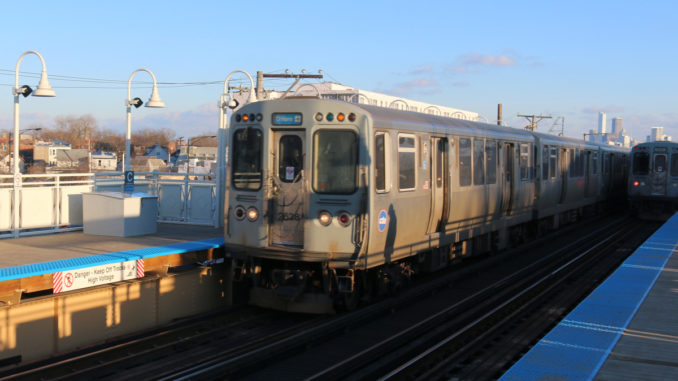
(The Center Square) – Democrat legislators have introduced the Metropolitan Mobility Authority Act, which would establish a new, fully integrated agency to deliver transit service throughout northeastern Illinois.
At a news conference, Gov. J.B. Pritzker said there will have to be changes made to the transit system to address a funding cliff and how to better operate the transit systems in the region.
“I like that there is creativity coming out of the General Assembly. I also think we need to make sure we are listening to other organizations, including the CTA, who ought to be coming forward with more about what changes need to take place,” said Pritzker.
Pritzker’s budget proposal calls for a diversion of $175 million in state taxpayer money committed to fund things like bridge repair and road improvement. Those taxpayer funds would be diverted to primarily Chicago-based public transit systems.
The proposed legislation would create a transit agency to oversee public transit across northeastern Illinois and companion legislation aims to spend $1.5 billion of taxpayer’s money in annual funding for public transportation.
Democrat legislators said the Chicago area needs a single, fully modernized transit agency to overcome a major operations funding shortfall. State Sen. Ram Villivalam, D-Chicago, Chair of the Senate Transportation Committee, said 95 out of the top 100 longest commutes stem from Black and Latino communities.
“That is at its core an equity issue. It’s harder for those communities to get to their jobs, schools and hospitals. We need to tackle the issue of what type of service we would like to see for our riders then we can talk about the funding that’s needed,” said Villivalam.
Villivalam said the issues with governance and service need to be tackled first.
“This bill will provide the efficiency and transparency that commuters and non-commuters want,” said Villivalam.
State Rep. Eva-Dina Delgado, D-Chicago, member of the House Transportation Vehicles and Safety Committee, said the Chicago Metropolitan Agency released the 2023 Plan of Action for Regional Transit (PART) for northeastern Illinois. The report and recommendations in it were considered when creating the proposed legislation.
“They took a lot of time to get into the data. A lot of their recommendations came out of that data and I don’t think it would be the right approach if we didn’t read that report and take into account what they’re saying and they’re recommending some pretty significant changes. We want to be bold and make real transformative change,” said Delgado.
Delgado dreams about a Chicago metro area where public transit is so good it becomes the first choice for people to get to work, school and visit family. She said The Metropolitan Mobility Authority Act is the first step in making that dream a reality. Pritzker said he’s not endorsing any particular plan.
“I’m pleased there is movement on this front but I am not endorsing any particular plan yet,” said Pritzker.
Instead of four government agencies (RTA, CTA, Pace, Metra) the newly created Metropolitan Mobility Authority (MMA) would oversee all bus, rail and paratransit operations.
The MMA would respond to the diverse needs of municipalities, counties and the state, according to The Partnership for Action on Reimagining Transit (PART).
“It will require quarterly reporting on the transit ridership by MMA directors overseeing the transit system and add new representation from unions, people with disabilities and the business community,” said PART.
PART is a coalition of business, transportation, civic and nonprofit leaders and transit riders that formed in 2021 to develop strategies and recommendations for a new way of funding and operating transit in Illinois.
The Metropolitan Mobility Authority Act is part one of the Clean and Equitable Transportation Act (CETA), a three-part platform that seeks to reform and fund transit, create standards to expand the use of zero emissions vehicles, and create targets to reduce greenhouse gas emissions and make the transportation sector 100% carbon-free by 2050.
— Catrina Petersen, The Center Square
This article was published by The Center Square and is republished here with permission. Click here to view the original.



